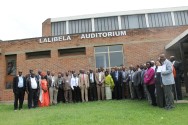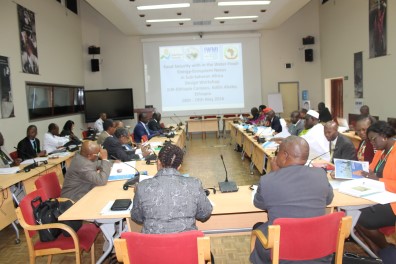Issues discussed during the workshop were illustrative of the diversity of challenges faced by the African continent and the need for a “Partnership for Development” approach was highlighted (UN SDG #17). The aim was not only to identify particular challenges related to managing water and food security, but to pave the way for all countries across Africa to benefit from an exchange of experiences; to learn from each other and eventually to disseminate good practices for improved livelihoods. The initiative will contribute to end hunger, improve access to energy (UN SDG #7) and improve natural resources management (UN SDG #2 #13 #14).
 This initiative is supported by several governments, and the Ethiopian Minister for Water, Infrastructure and Environment and the Chair of UN CFS gave opening speeches at the workshop, thereby showing a high level support.
This initiative is supported by several governments, and the Ethiopian Minister for Water, Infrastructure and Environment and the Chair of UN CFS gave opening speeches at the workshop, thereby showing a high level support.
Based on the discussions held in 2015 in the countries and following a dense agenda, the discussions allowed the participants to share experiences and information and to reflect on the development of the initiative at country, regional and global level.
The results of the workshop can be summarized by
- the creation of a technically strong, committed group, united around a common objective and
- the identification of the basis for an ambitious programme in 9 countries (Benin, Burkina Faso, Ethiopia, Lesotho, Malawi, Mali, Nigeria, Uganda, Sudan), 3 regions (Eastern, Southern, Western Africa), on 1 continent.
A full report of the workshop is available here.
The next step is to pursue the discussion with all stakeholders at country level in order to fine tune the project in a very inclusive manner and with all relevant partners.

